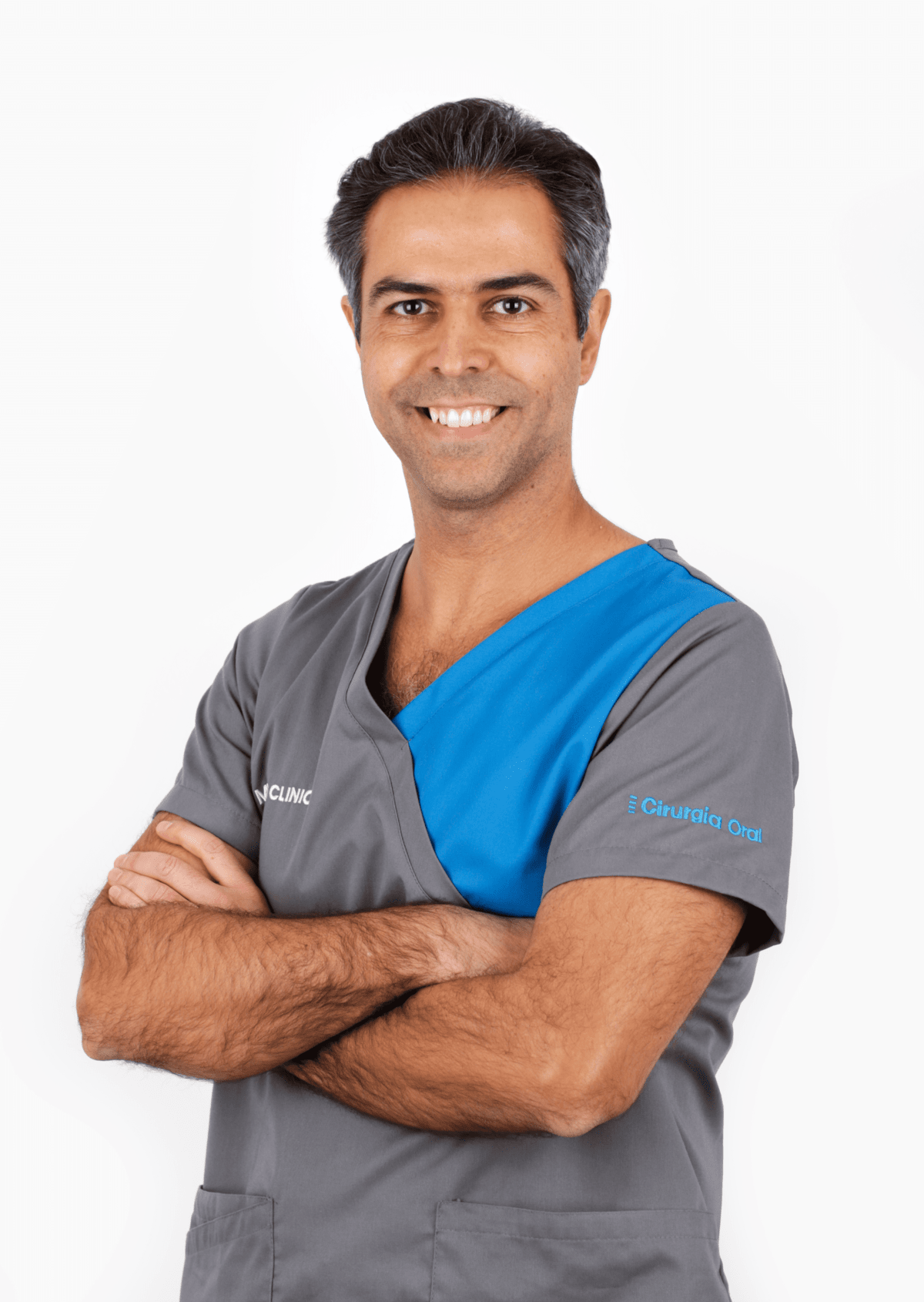Implantology
About the speciality of implantology
Implantology is an area of Dental Medicine that aims to rehabilitate the absence of one or more teeth by placing dental implants.
The total or partial absence of teeth has a huge impact on our quality of life, compromising function and aesthetics, with serious consequences for physical and mental health. Unlike removable prostheses, which generate some discomfort and lack of confidence, especially on a social level, dental implants have numerous advantages not only from a functional and aesthetic point of view, but also in terms of patient self-confidence.
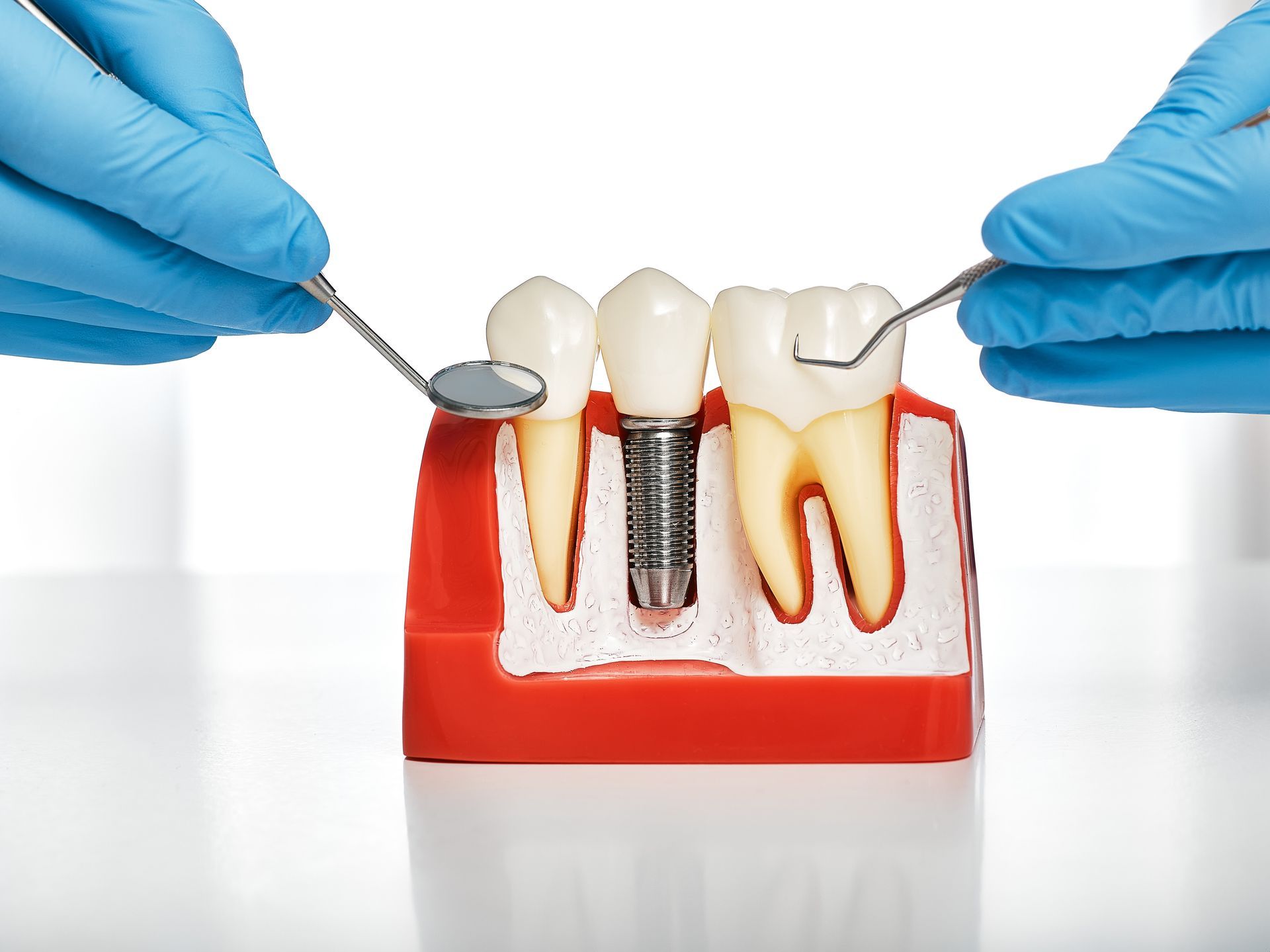
Made from titanium, a metal that is biocompatible with human tissues, dental implants function as artificial roots on which single crowns, or total or partial fixed bridges are placed, replacing the natural dentition with a high degree of perfection.
Whether you're missing just one tooth, several or even your entire set of teeth, at MALO CLINIC you'll find the ideal implantology solution for your case. You can regain your quality of life and smile with confidence again!
Dental implants - Which implantology solution is the most suitable for me?
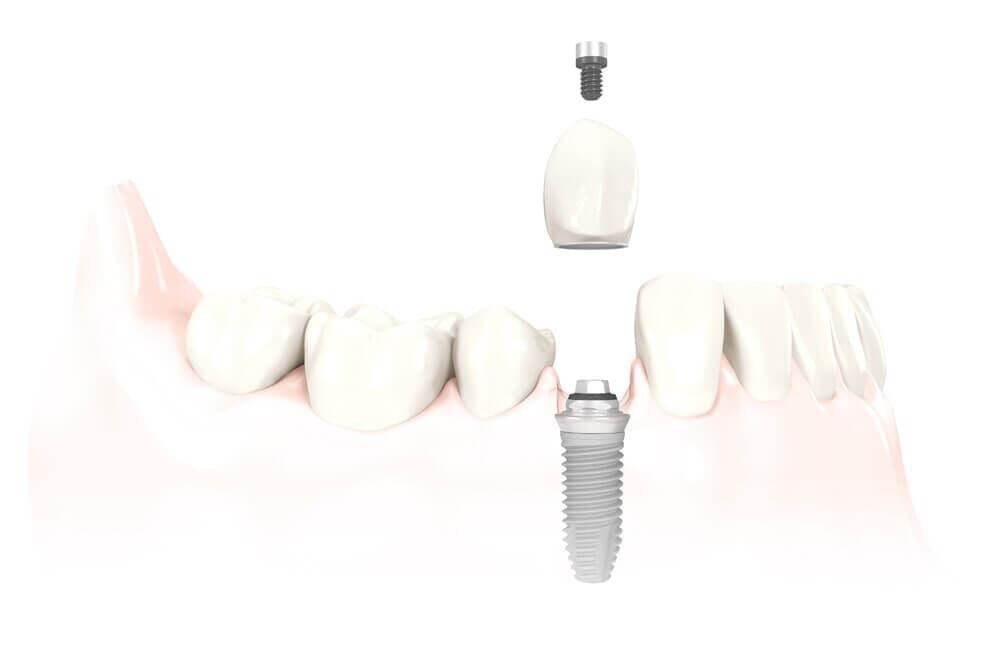
Only 1 missing tooth: A single tooth implant is the best implantology solution
A missing tooth, regardless of whether it is visible or not, should be replaced with a dental implant, since in the medium to long term it can contribute to the development of various oral health problems.
Single dental implants act as a support for the placement of a crown that will perfectly replace the natural tooth, both functionally and aesthetically. The crown is made to match the shade and contour of the natural teeth so that no difference is visible. This implantology solution also allows adjacent healthy teeth to be preserved as there is no need to wear them down.
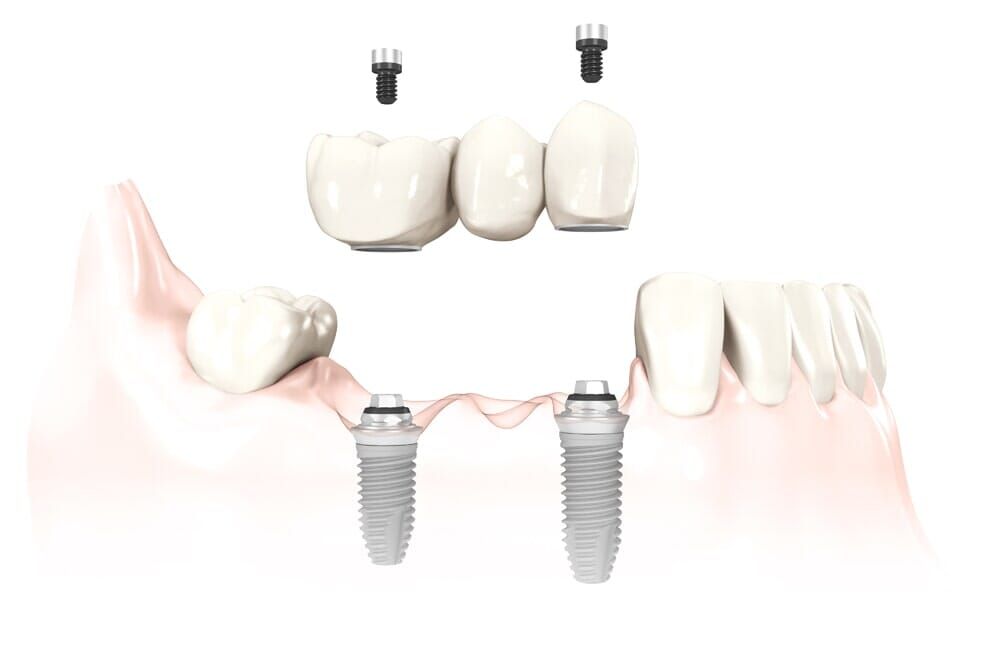
Multiple missing teeth: A dental implant-supported bridge is the best implantology solution
If you have two or more missing teeth, the ideal implantology solution for your case is to replace them with a bridge supported by dental implants.
The bridge is a long-lasting implantology solution that benefits from all the advantages of dental implants, namely preventing bone loss and preserving adjacent teeth, while at the same time functioning as natural teeth, both functionally and aesthetically.
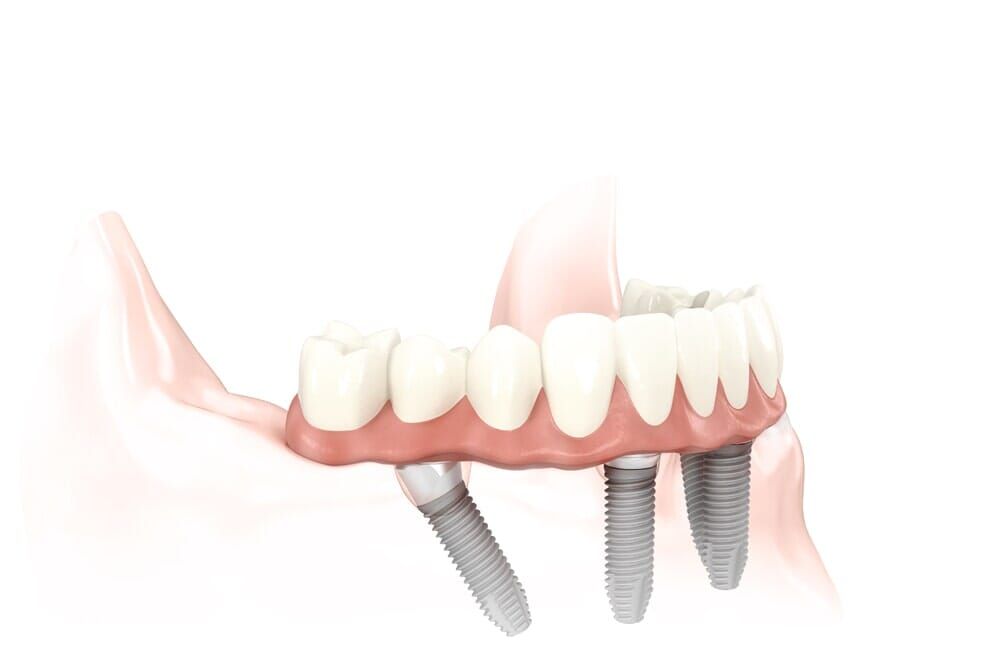
All missing teeth: Fixed Dental Prosthesis is the best implantology solution
Missing all your teeth is something that causes psychological stress, affecting quality of life and self-esteem. For many people with this problem, the use of removable prostheses proves to be very painful and uncomfortable, leading to continuous bone resorption due to the trauma they cause.
If this is your situation, opt for an implantology solution with a fixed prosthesis on dental implants that will allow you to regain your self-esteem. The concept of
Fixed Dental Prosthesis is the ideal implantology solution. You can eat, talk and smile with confidence again!
Benefits of implantology for oral health
Durable Tooth Replacement:
Dental implants offer a long-term solution to address tooth loss, with significantly more durability than other options such as removable dentures.
Improved chewing function:
Implants function like natural teeth, allowing efficient and comfortable chewing, which is essential for good digestion and nutrition.
Improved Aesthetics:
Implant-supported dentures are designed to look like natural teeth, improving the patient's appearance and confidence.
Bone Preservation:
Implants help prevent bone resorption, a common problem after tooth loss. The stimulation of the bone by the masticatory load maintains bone density.
Comfort and Stability:
Unlike removable prostheses, implants are fixed and stable, eliminating problems of adaptation or discomfort.
Improved Speech:
Incorrectly fitted dentures can affect speech. Implants provide a secure hold for dentures, allowing for clear, natural speech.
What pathologies can the speciality of implantology treat?

Single tooth loss:
Replacement of a single missing tooth without affecting adjacent teeth.

Multiple tooth loss:
Replacement of several missing teeth with implant-supported fixed bridges.

Total tooth loss:
Total Fixed Dental Prosthesis Placement. Complete rehabilitation of the upper and/or lower dental arch with fixed prostheses supported by just 4 implants.

Bone loss:
The loss of natural teeth is associated with progressive bone loss. Oral rehabilitation with implants can play a fundamental role in stabilising and preventing bone resorption.
Clinical Cases
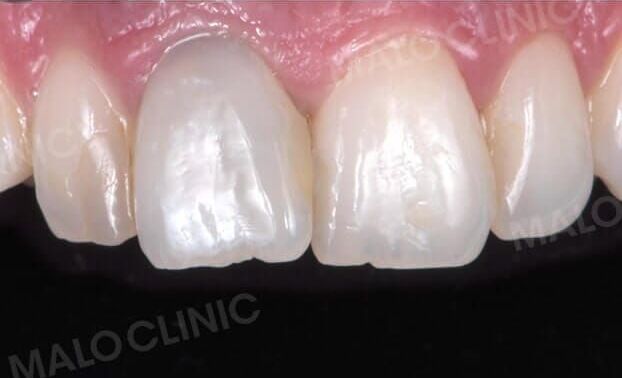
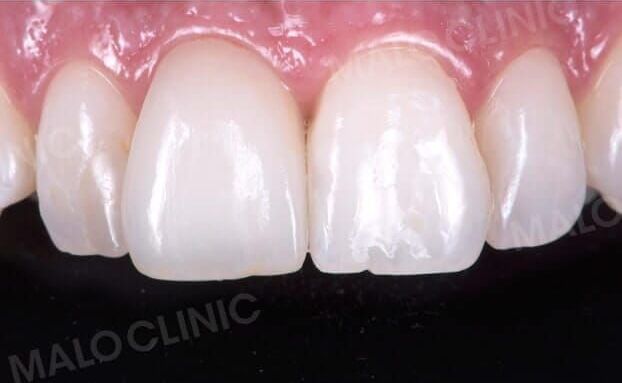
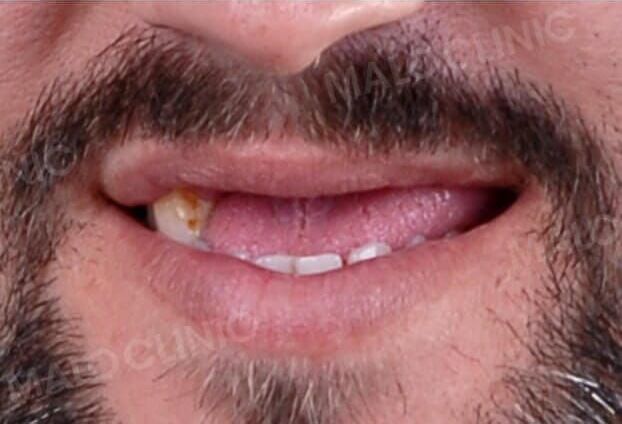
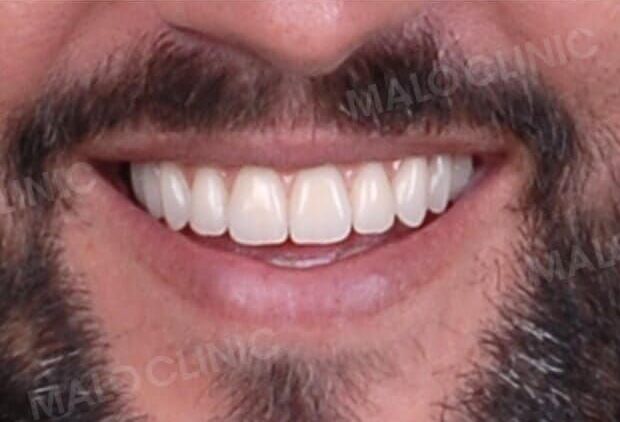
Our Clinical Team is here to help you!
Clinical Team
FAQ's
1. What are dental implants?
Dental implants are titanium devices that are inserted into the maxillary or mandibular bone to replace the roots of lost teeth. They serve as the basis for fixing fixed dental prostheses, such as single crowns, bridges or full dentures.
2. Who is a good candidate for dental implants?
Ideal candidates for dental implants are those who have good oral and general health, healthy gums, and sufficient bone to support the implant. However, even in patients with diseases such as diabetes, osteoporosis or other health conditions, treatment with dental implants is not contraindicated.
3. Is the procedure for placing implants painful?
Implants are placed under local anaesthetic, which allows pain control during the procedure. After surgery, it is common to feel some discomfort or swelling, which can be minimised with painkillers prescribed by the dentist.
4.How long does the dental implant placement process take?
The surgical process for placing implants is quick, between 1 and 3 hours, depending on the complexity of the case. A fixed prosthesis is also fitted on the same day. However, we can say that the process is only fully finalised 4 to 6 months later, as this is the time needed for the osseointegration process (the fusion of the implant with the bone) to take place.
5. What is osseointegration?
Osseointegration is the biological process by which the titanium implant fuses to the maxillary or mandibular bone, creating a stable and durable base for the definitive fixed prosthesis. This process is crucial to ensuring the long-term success of dental implants.
6. How should I look after my dental implants?
Dental implants require the same care as natural teeth. This includes daily brushing and flossing, or other additional mechanisms recommended by your dentist or oral hygienist, such as subgingival irrigators. Maintaining good oral hygiene and regular maintenance appointments is essential to prevent infections or other complications around implants.
7. What is the success rate of dental implants?
Dental implants have a high success rate of around 98%. However, long-term success depends on factors such as the patient's general health, the quality of the bone and compliance with the maintenance protocol and proper oral hygiene.
8. Do dental implants have any risks or complications?
Like any surgical procedure, placing dental implants can have risks, including infection, nerve damage and sinus problems. However, these risks are rare and can usually be managed with proper care and professional monitoring.
9. Can I replace a conventional denture with implants?
Yes, many patients choose to replace conventional dentures with partial or full dentures supported by implants for greater comfort, stability and phonetic and chewing function. Implants also offer the additional advantage that, unlike removable prostheses, they do not cause trauma to adjacent tissues or teeth and prevent or stabilise bone loss.



